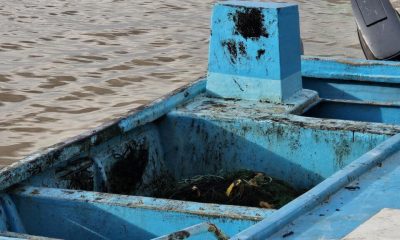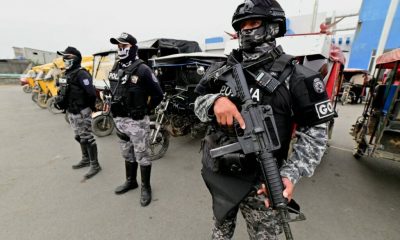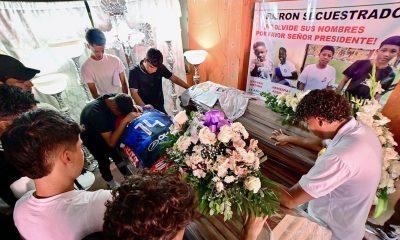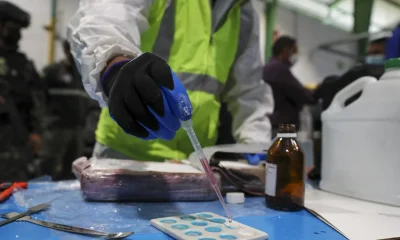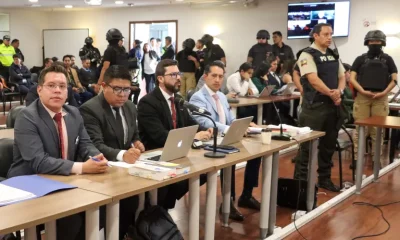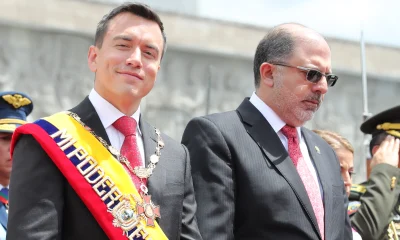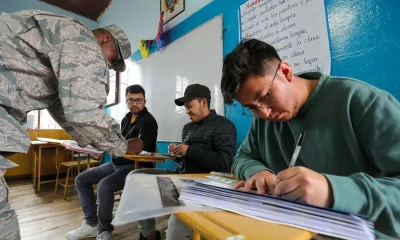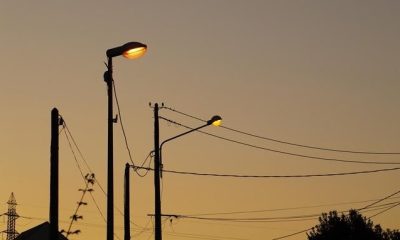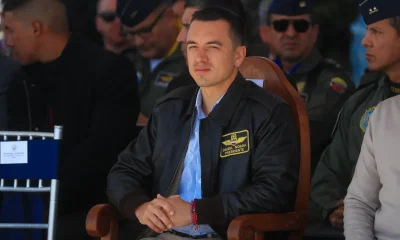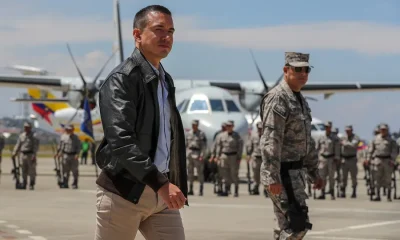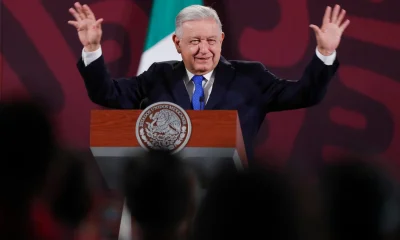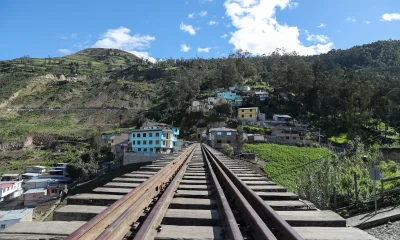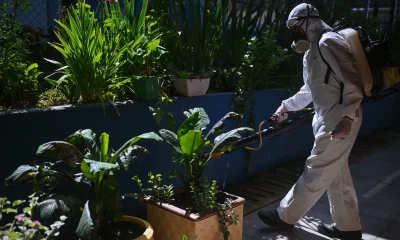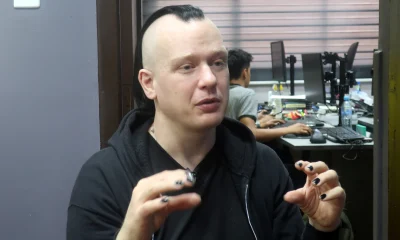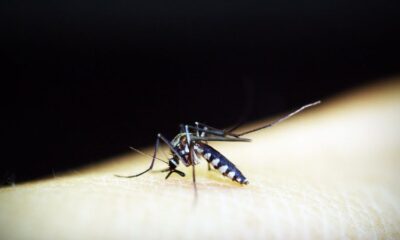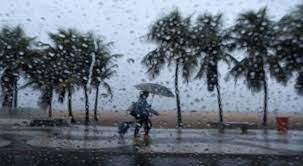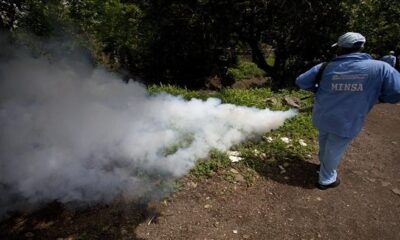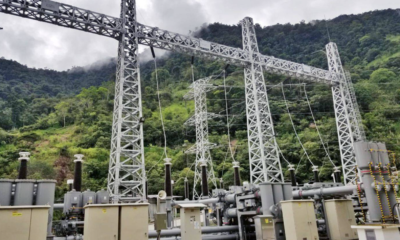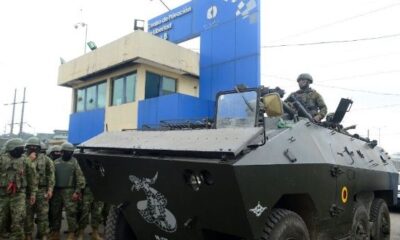International
Ecuador registered 173 cases of dengue fever since the beginning of the year
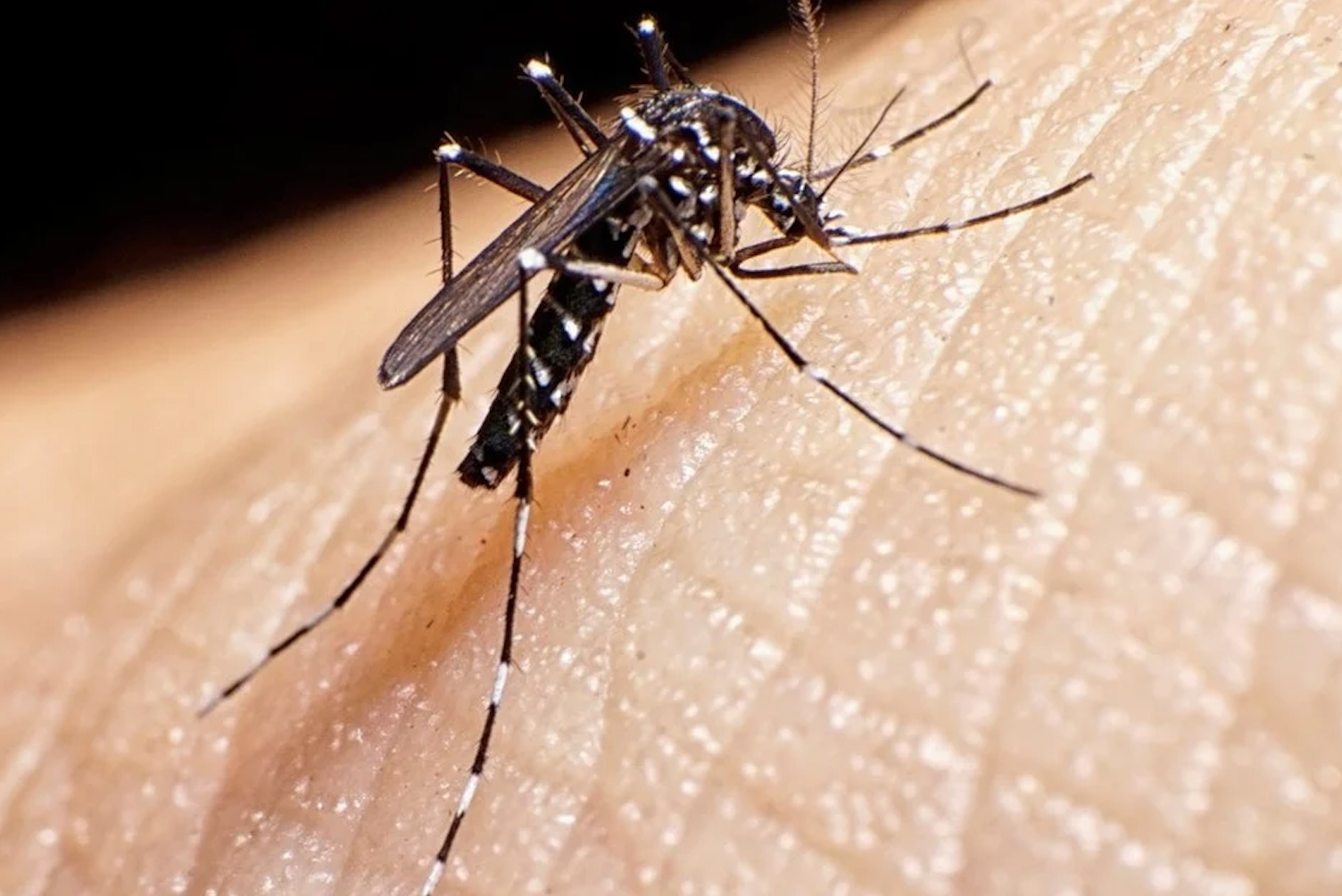
February 3rd |
This year alone, Ecuador has already registered 173 cases of dengue fever in the localities that make up zone 8 of the country, composed of Guayaquil, Durán and Samborondón, according to the Ministry of Public Health.
The epidemiological report of the health portfolio indicates that there are 95 patients in Guayaquil and 78 in Durán, while in Samborondón there are still no cases of this disease. Health authorities have reported a slight increase compared to the same period last year, when 162 cases were registered. In total, during 2022, there were 2,600 patients with dengue fever in these three cities.
As part of the preventive and health work, brigades of the Ministry of Health travel through neighborhoods of Guayaquil to carry out evaluations of water reservoirs in homes that usually attract dengue mosquitoes.
During the rounds, health officials also check buckets, containers and other objects where water can stagnate.
The Ministry of Health has also enabled the reception of people who can attend the health centers and request a visit from the Ministry’s brigades to their neighborhoods.
In addition, as part of their work, they tested the water found in these reservoirs and found Aedes aegypti aquatic larvae, which are vectors of tropical diseases. This is a domestic mosquito, which lives in and near houses and breeds in any artificial or natural container containing water.
The dengue-transmitting mosquito lays its eggs in artificial containers containing water, mainly barrels and tires, which are in or around houses, schools or workplaces. Aedes aegypti eggs can withstand dry environmental conditions for more than a year. This is considered one of the most important strategies the species employs to survive and spread, according to the Pan American Health Organization (PAHO).
To eliminate mosquitoes, PAHO recommends the following actions: avoid collecting water in outdoor containers (flower pots, bottles or other containers that can collect water) so that they do not become breeding sites for mosquitoes; adequately cover water tanks and reservoirs to keep mosquitoes away; avoid accumulating garbage; dispose of garbage in closed plastic bags.
Several residents of the neighborhoods of Guayaquil and Duran have testified that, due to the storm, the presence of mosquitoes increases, especially in areas with lots of vegetation such as parks, where water also accumulates.
According to PAHO, dengue is a disease transmitted by the bite of an infected mosquito and can affect people of all ages. Symptoms range from a mild fever to a disabling fever, as well as severe headache, pain behind the eyes, muscle and joint pain, and erythema – reddening of the skin.
The disease may progress and become severe. In this state there is respiratory distress or severe organ damage.
Dengue, according to PAHO, has a seasonal behavior. In countries of the Southern hemisphere, most cases occur during the first half of the year, while in the Northern hemisphere, cases occur mostly in the second half of the year. This pattern of behavior corresponds to the warmest and rainiest months.
PAHO data indicate that around 500 million people in the Americas are at risk of contracting dengue. Aedes aegypti, which is the mosquito vector for dengue, is widely distributed throughout the territory, with the exception of Canada and continental Chile, which are dengue-free. In the case of Uruguay, although the mosquito is present, no cases of dengue fever have been reported.
International
Bolivia Orders Three Investigations Into Deadly Military Plane Crash
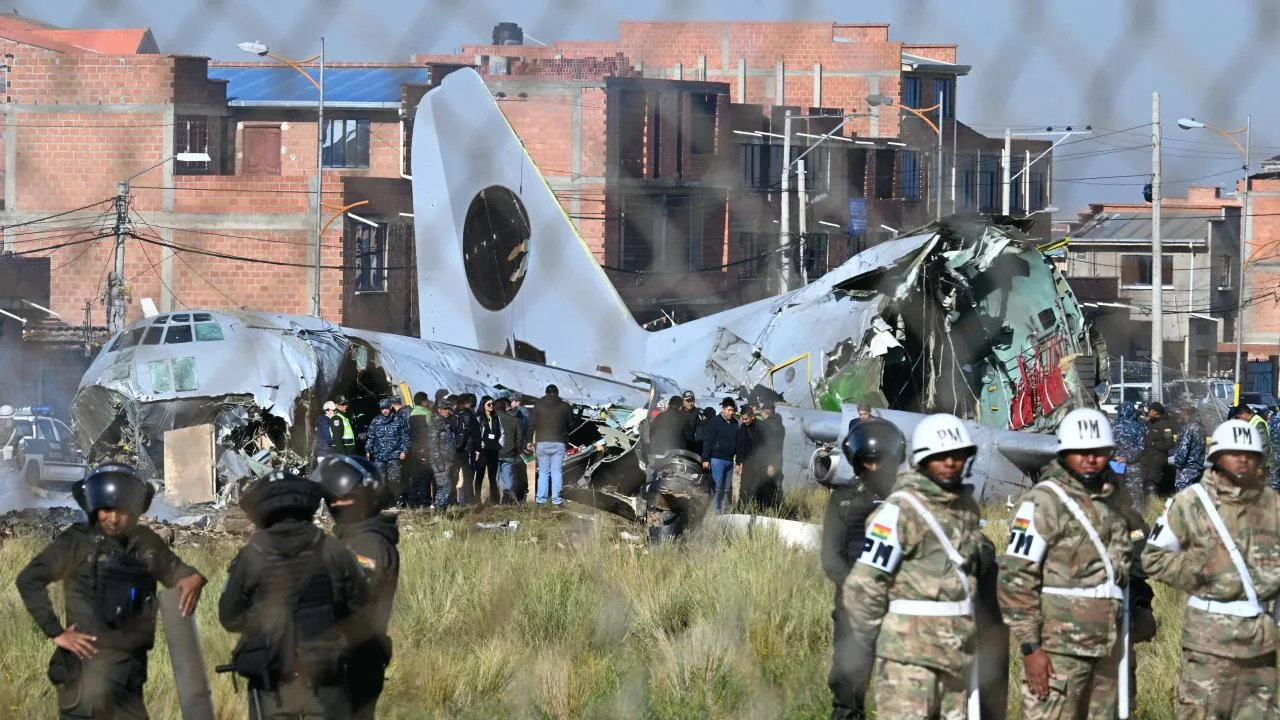
Bolivia’s Defense Minister Marcelo Salinas announced Monday that three separate investigations will be conducted into Friday’s crash of a military cargo aircraft at El Alto International Airport, near La Paz, which left at least 22 people dead.
The Hercules aircraft, operated by the Fuerza Aérea Boliviana (FAB), was transporting cash intended for the Central Bank of Bolivia when it overshot the runway after landing from the city of Santa Cruz. The plane reportedly traveled nearly one kilometer beyond the airport perimeter.
The incident sparked chaotic scenes, with individuals attempting to collect scattered banknotes. Authorities detained 51 people in the aftermath, and the government declared three days of national mourning.
Multiple Investigations Underway
The first inquiry is being led by a military board from the Bolivian Air Force, which has already taken custody of the aircraft’s black box for analysis.
Minister Salinas said two additional investigations will follow — one conducted by the insurance company and another by the aircraft’s manufacturer.
“At least two more investigations will come, that of the insurance company and that of the aircraft manufacturer,” Salinas said during a press conference in Santa Cruz.
He cautioned that the investigative process could take between three and six months, noting that the black box cannot be opened in Bolivia due to the lack of specialized laboratories for analysis.
Awaiting Official Findings
Salinas stressed that the FAB investigative board is the highest authority in the case and urged the public to wait for its conclusions to avoid speculation about the causes of the crash.
He also confirmed that the government has contacted the families of the 22 victims and the 37 injured, as well as the owners of 15 damaged vehicles, to coordinate procedures with the insurer and cover the corresponding expenses.
International
Mexico Calls for Immediate Probe After National Dies in ICE Custody
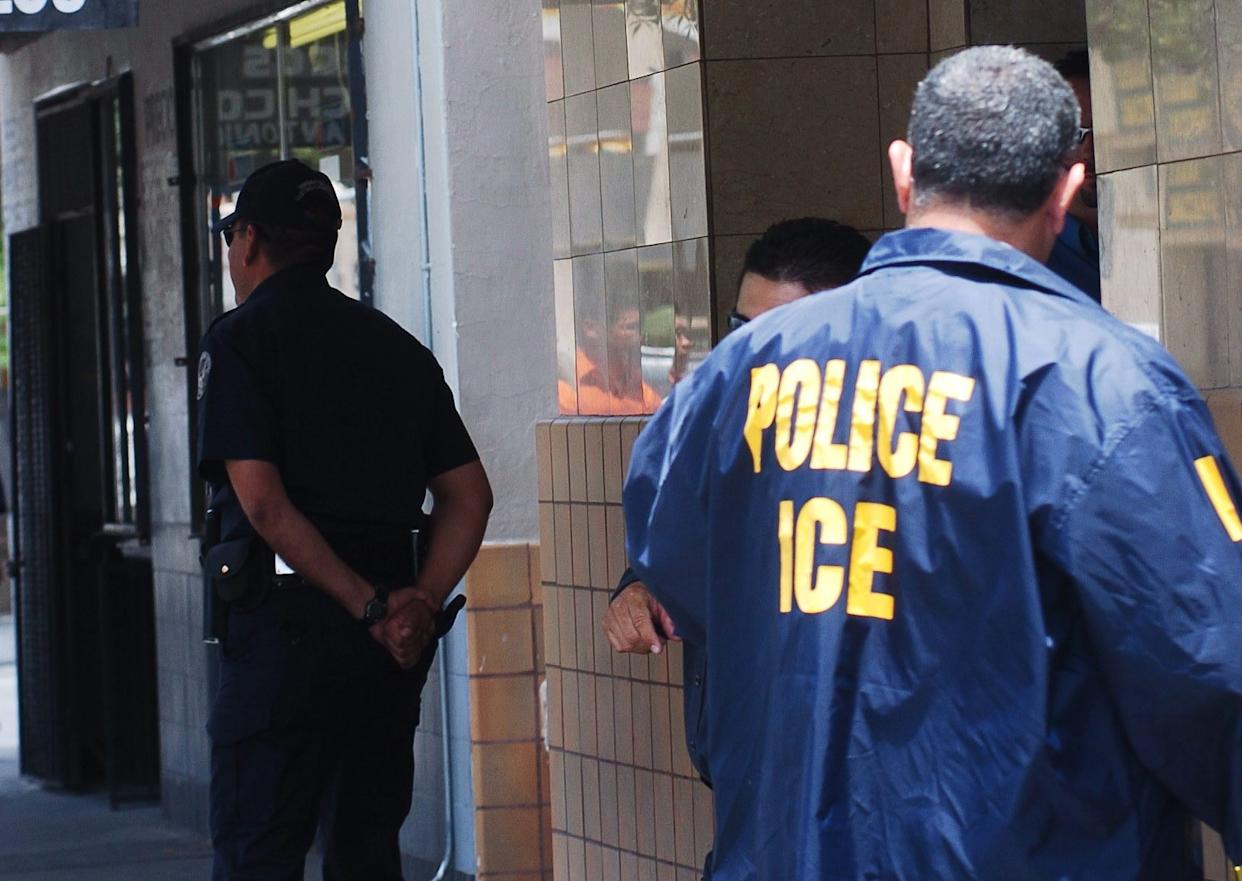
Mexico’s Secretaría de Relaciones Exteriores (SRE) on Monday called on U.S. authorities to conduct an “immediate and thorough” investigation into the death of a Mexican national while in custody of U.S. Immigration and Customs Enforcement (ICE) at a processing facility in California.
In a statement, the Mexican government described the death as “regrettable” and urged U.S. officials to clarify the circumstances surrounding the case in order to “determine responsibilities and ensure that such events do not happen again.”
Death at Adelanto Processing Center
According to available information, the Mexican citizen died at the Adelanto Processing Center in California while under ICE custody. Authorities have not yet released the individual’s identity or the cause of death.
Following the incident, Mexico’s Foreign Ministry formally requested “detailed information” from U.S. authorities, including the detainee’s medical records and custody reports.
Consular Assistance Activated
The Mexican Consulate in San Bernardino, California, has activated consular assistance protocols to provide ongoing support to the deceased’s family. Officials have contacted relatives to express condolences and offer legal guidance, as well as assistance with the necessary procedures to repatriate the remains.
“The handling of situations like this and the establishment of mechanisms to resolve them are priorities for the Government of Mexico,” the Foreign Ministry said, adding that it will formally request an investigation into any systemic conditions that may have contributed to such incidents.
Local Mexican media reported that seven Mexican nationals died while in ICE detention last year — the highest number recorded since the agency was created.
International
Anti-ICE Billboard Campaign Targets Immigration Spending in 31 U.S. Cities

More than 200 billboards criticizing U.S. Immigration and Customs Enforcement (ICE) began appearing Monday in 31 cities across the United States, including Miami, as part of a campaign highlighting the high cost of immigration enforcement operations for taxpayers.
The initiative, titled “ICE Costs Us,” was launched by the civil rights organization Mijente and will run for four weeks.
Criticism of Spending and Enforcement Tactics
The billboards feature images of ICE agents during arrests or carrying military-style weapons. According to the organization, spending on military-grade equipment for the agency has increased by 600 percent in recent years.
Several signs display messages such as:
“Your taxes are being wasted” and “ICE’s cruelty costs you $28 billion,” referring to the agency’s annual budget.
In a statement, Marisa Franco, co-founder of the Mijente Support Committee, said:
“For too long, our government has prioritized building cages and investing billions in an immigration enforcement apparatus that has left families torn apart and communities terrified.”
She added that “Millions of Americans are living paycheck to paycheck, yet this violent agency continues operating with a blank check. These decisions do not make us safer nor improve our economic security. Our billboards highlight these choices and demand a different path.”
Budget Debate and Medicaid Comparison
The campaign also draws a comparison between ICE’s funding and the estimated 17 million people who could lose health coverage under Medicaid due to federal budget cuts under President Donald Trump.
Other billboard messages seen in various cities include:
“They get billions to beat us; we get layoffs and rising rents” and “Funding ICE is a fast track to fascism.”
Organizers say the goal is to spark public debate about the allocation of federal funds for immigration enforcement and the broader economic and social impact of such policies on communities nationwide.
-

 International4 days ago
International4 days agoCocaine Production Surges 34% in 2023 as Market Expands into Africa and Asia
-

 International1 day ago
International1 day agoIran Reports 201 Dead, 747 Injured After U.S. and Israeli Strikes
-

 International3 days ago
International3 days agoTrump Floats “Friendly Takeover” of Cuba Amid Rising Tensions
-

 Sin categoría2 days ago
Sin categoría2 days agoTrump: ‘We Think It’s True’ Amid Claims Iran’s Supreme Leader Was Killed
-

 International2 days ago
International2 days agoSecurity Council to Hold Emergency Meeting on Middle East Crisis
-

 International4 days ago
International4 days agoFederal Judge Blocks Trump Policy Allowing Deportations to Third Countries
-

 International3 days ago
International3 days agoArgentina’s Senate Reviews Milei-Backed Labor Overhaul
-

 International1 day ago
International1 day agoPope Leo XIV Urges End to ‘Spiral of Violence’ in Middle East
-

 International4 days ago
International4 days agoClinton Accuses Republican Committee of Using Epstein Case to Shield Trump
-

 International5 hours ago
International5 hours agoTrump Warns of ‘Major Wave’ of Attacks as Iran Conflict Escalates
-

 International5 hours ago
International5 hours agoAnti-ICE Billboard Campaign Targets Immigration Spending in 31 U.S. Cities
-

 International5 hours ago
International5 hours agoMexico Calls for Immediate Probe After National Dies in ICE Custody
-

 International5 hours ago
International5 hours agoBrazil’s Supreme Court Rejects Bolsonaro’s Bid for House Arrest
-

 International5 hours ago
International5 hours agoBolivia Orders Three Investigations Into Deadly Military Plane Crash
-

 Central America5 hours ago
Central America5 hours agoPanama Canal Monitoring Trade as Middle East Conflict Disrupts Shipping



























